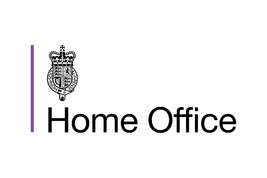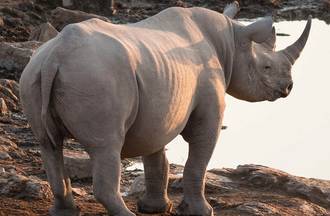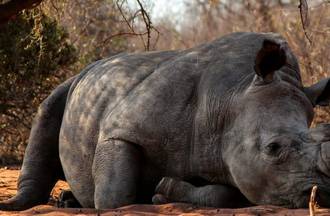Independent Assessment of Illegal Wildlife Trade in the UK
Commissioned by the Home Office, RUSI is leading an independent assessment of the UK’s performance on tackling financial crime related to illegal wildlife trade (IWT).
The UK government is one of the leading international voices and donors calling for an increased focus on the illicit financial dimensions of IWT. This is evidenced by the establishment of the UK IWT Challenge Fund, by the London Conference Declarations in 2014 and 2018 and, more broadly, by the Royal Family’s leadership on this problem.
This is in line with the objectives of the UK’s Integrated Review of Security, Defence, Development and Foreign Policy, which makes tackling climate change and biodiversity loss one of the UK’s top international priorities.
Under the UK’s presidency, in June 2021, G7 leaders agreed to a shared Nature Compact to halt and reverse biodiversity loss by 2030. Among other measures, the Nature Compact commits partners to strengthening their enforcement response to money laundering and financial crime associated with IWT and other environmental crimes.
These efforts build upon the call by the Financial Action Task Force (FATF) in June 2020 for countries to assess their exposure to IWT-linked money laundering; ensure all powers are available in law to bring financial charges in IWT cases; and undertake a greater number of financial investigations.
Aims and objectives
In the Nature Compact, G7 leaders agreed to report on their progress in implementing these three recommendations. Accordingly, the Home Office commissioned RUSI to independently assess the UK’s progress. Informed by over 40 semi-structured interviews and a public call for evidence, RUSI's analysis articulates what is known about the proceeds of IWT in the UK and the strengths and weaknesses of the UK’s current enforcement approach.
Project sponsor
Home Office
This project has been commissioned by the Home Office
Project outputs and impact
RUSI’s paper is the first independent, contemporary study to address the UK’s exposure to IWT-linked illicit financial flows, helping the UK government to fulfil commitments made in the G7 Nature Compact.
Chief Inspector Kevin Kelly and Head of the National Wildlife Crime Unit said of RUSI's research:
'Today is a huge step forward as we’re getting wildlife crime and the illegal wildlife trade viewed for the serious and significant crime type that it is. IWT is often closely linked to traditional serious and organised crime types if we look hard enough and the exploitation of animals is a global concern. Its working with the likes of RUSI who help us get what we see in the operational field into the eyes of the governments and the public. I welcome this report and look forward to working with RUSI in the future as we fight against wildlife crime.'










